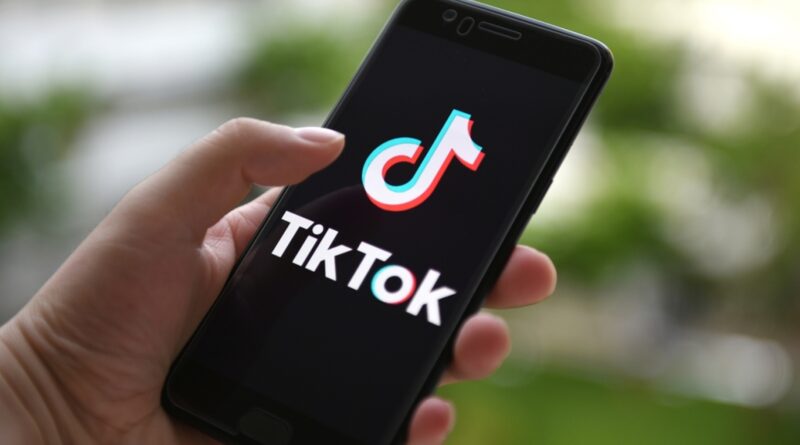What Will Become of TikTok? After Bitter Congressional Hearing, App’s Future Is ‘Shakier Than Ever’
Music
Following its CEO’s contentious testimony, the platform – and the music industry – face several uncertain possibilities as lawmakers seem intent on a crackdown.
A TikTok logo displayed on a smartphone.
Sheldon Cooper/SOPA Images/LightRocket via GI
As the U.S. government considers banning social media app TikTok, the U.S. music industry faces a few scenarios regarding the platform that’s become a lifeline for discovering and breaking artists — and most aren’t good.
The grilling of TikTok CEO Shou Zi Chew by members of the House Energy and Commerce Committee on Thursday (March 23) had all the political theater expected from a Congressional hearing. It also had one important characteristic unusual for the United States in 2023: bi-partisan agreement. Despite Chew’s insistence that U.S. TikTok users’ data cannot be accessed from China, home of parent company Bytedance, neither Democrats nor Republicans seem intent on allowing TikTok to operate within their borders.
The showdown seemed inevitable given TikTok’s foreign entanglements and the app’s quick ascendence. The app accounted for 17% of total time spent on mobile apps globally in 2022, according to Data.ai — second behind WeChat’s 19.5% and well ahead of No. 3 YouTube’s 12.7%. Chew told lawmakers that TikTok has 150 million users in the U.S. That’s 50% more than the 100 million figure TikTok previously made public (and eMarketer’s latest estimate of 95.8 million at the end of 2022). Among U.S. Gen Z consumers aged 18 to 24, TikTok ranks No. 2 behind Instagram in monthly average users, according to Data.ai.
But the app’s fate in the United States “is on shakier ground than ever,” according to eMarketer principal analyst Jasmine Enberg. “TikTok’s decision to highlight how entrenched the app has become in US society was miscalculated,” Enberg said in a statement. “It actually strengthened U.S. lawmakers’ argument that TikTok poses a threat to both national security and young people.”
Brendan Carr, a commissioner with the Federal Communications Commission, agrees. The vocal TikTok critic told CBS News “the day could not have gone any worse for TikTok” and that Chew “completely failed” to gain “some level” of trust and credibility with members of Congress.
While a TikTok ban appears popular amongst politicians, not everybody is supportive. The Cato Institute’s Paul Matzo called a ban “a hamfisted mistake” born from “neo-Cold War paranoia.” It wouldn’t necessarily make America safer, he argued, and would amount to a bail-out for Meta, whose TikTok competitor, Instagram, has failed to win on a level playing field. The Brookings Institute’s Darrell M. West and Michaela Robison argue that a ban would open up U.S. companies in China — such as automaker Tesla — to similar scrutiny.
If a ban could withstand a legal challenge — former President Donald Trump’s attempt to ban TikTok and Chinese messaging app WeChat both failed — TikTok’s parent company, Bytedance, would be forced to sell the company. President Joe Biden’s administration has encouraged Bytedance to sell TikTok. But it wouldn’t be a straightforward process. China would “strongly oppose” a forced sale, a Ministry of Commerce spokesperson said Thursday, and TikTok is subject to Chinese law on tech exports and would require government approval.
A prompt sale of TikTok, which is reportedly valued at $60 billion, would be the best outcome for the music industry in search of new sources of streaming revenue. TikTok’s revenue rocketed from $4 billion in 2021 to $10 billion in 2022, according to reports. Research firm Omdia projects that TikTok’s ad revenue will climb to $44 billion by 2027 — presumably assuming there are no geopolitical interferences — and surpass the combined video ad revenues of Meta and YouTube. Although TikTok is not a major source of revenue for labels and publishers, rights holders expect to eventually have licensing agreements that give them a share of advertising revenue for user-generated content (like their deal with YouTube).
The current hodgepodge of bans also hurts both TikTok and the music industry. In the United States, TikTok has already been banned by some federal agencies, state and local governments and universities. Elsewhere, TikTok has been banned from the official phones of staff of the European Commission, U.K. parliament, Canadian government, Belgian government, Danish Defense Ministry and Latvian Foreign Ministry, to name a few. Fewer TikTok apps installed on fewer smartphones is twice the punishment for an app that depends on user-generated content. Lower usage means fewer people creating and viewing videos.
Perhaps the biggest question is what would happen to TikTok under new ownership. If, say, Oracle owned a stake in TikTok, as was proposed during the Trump administration, would the app continue to have the same magical recommendation algorithm that has made TikTok so irresistible and its competitors unable to keep up? New ownership would eliminate restraints on TikTok’s revenue and user growth, but if the product suffers, the music industry would be handed a less effective promotional tool and a less valuable source of revenue. The only certainty in this TikTok controversy is that such unintended consequences are guaranteed.
Daily newsletters straight to your inbox
Subscribe
More From Pro

